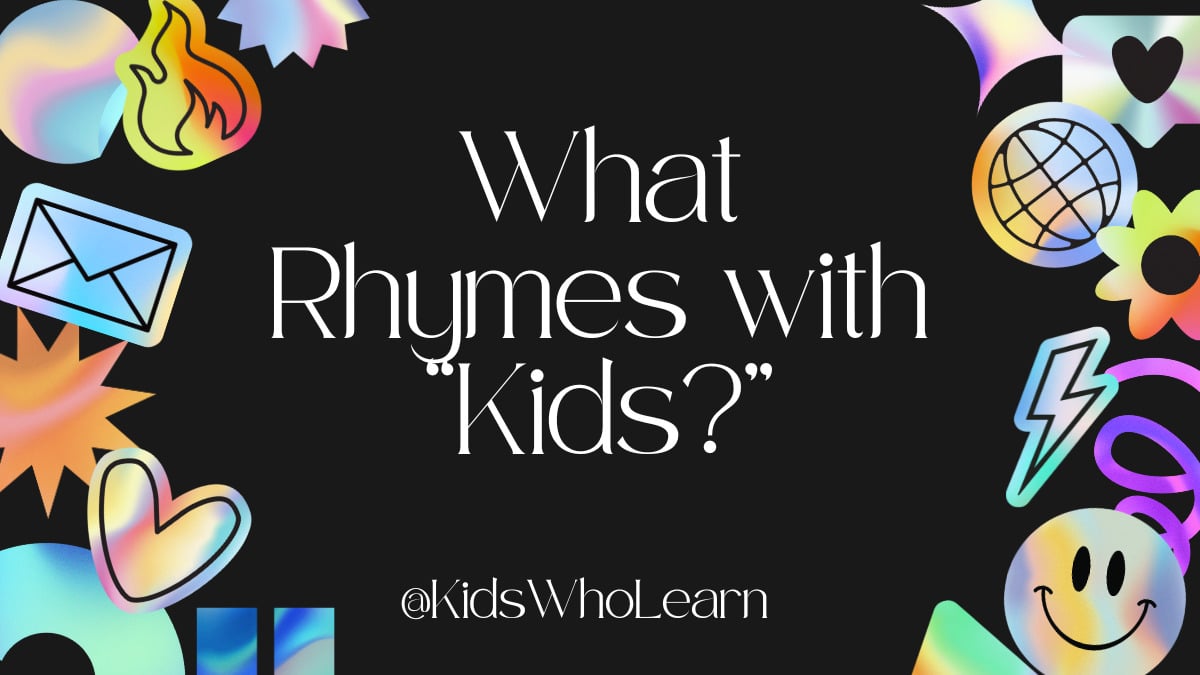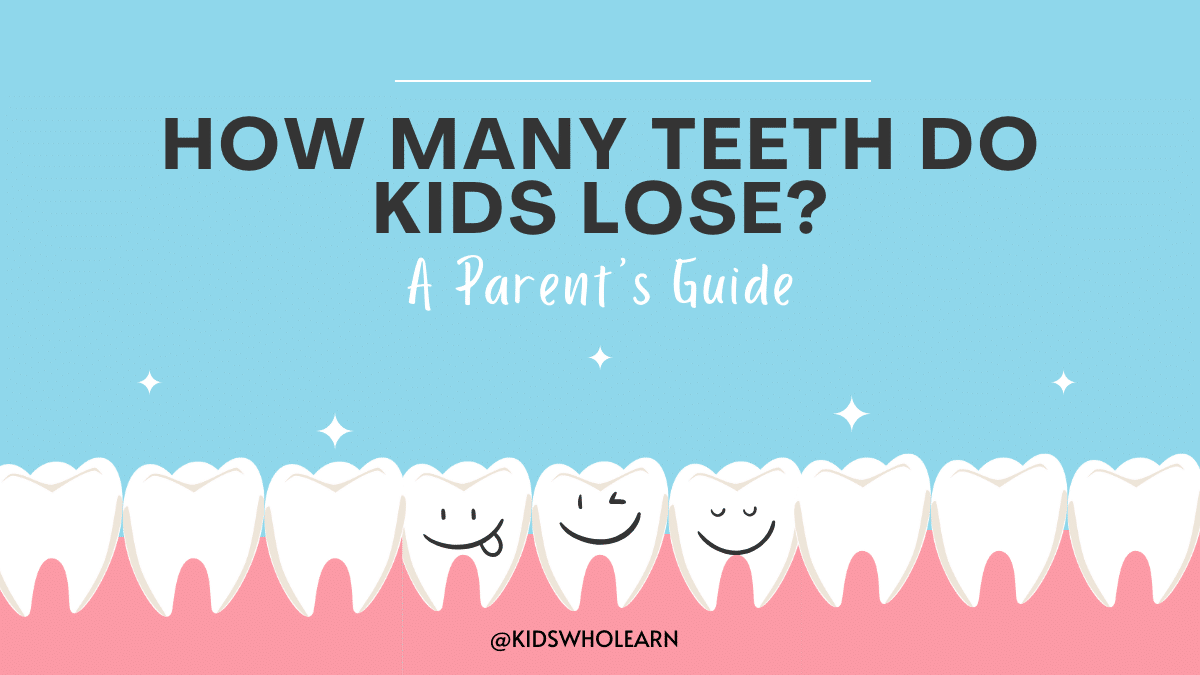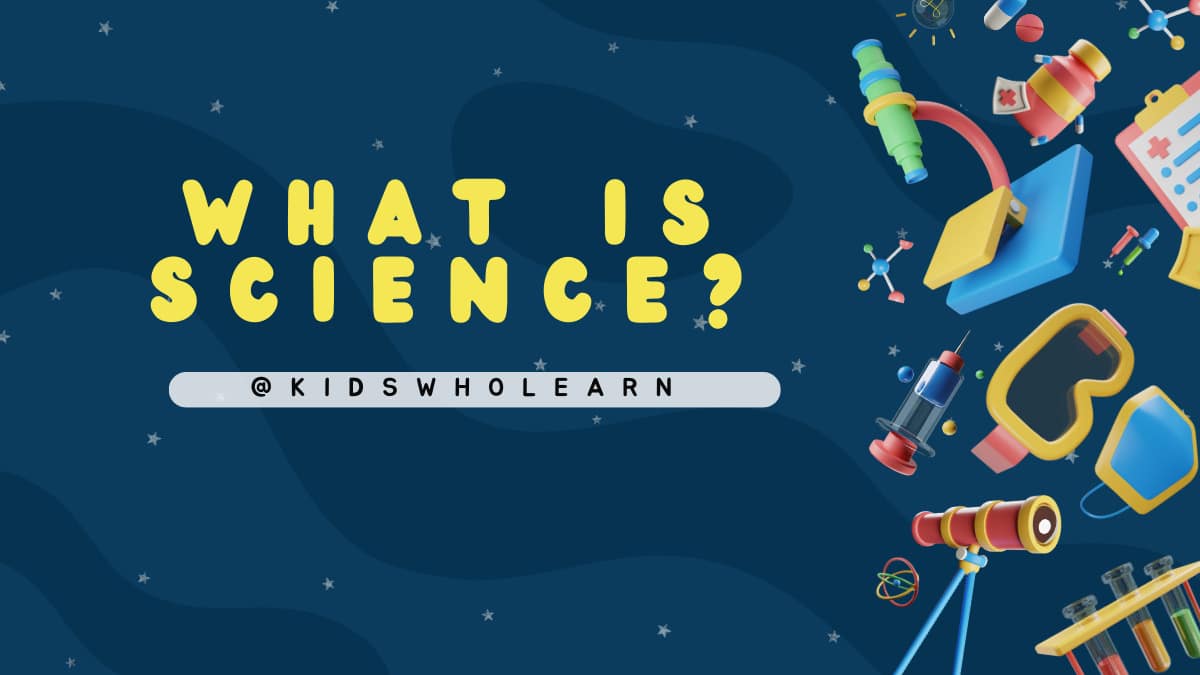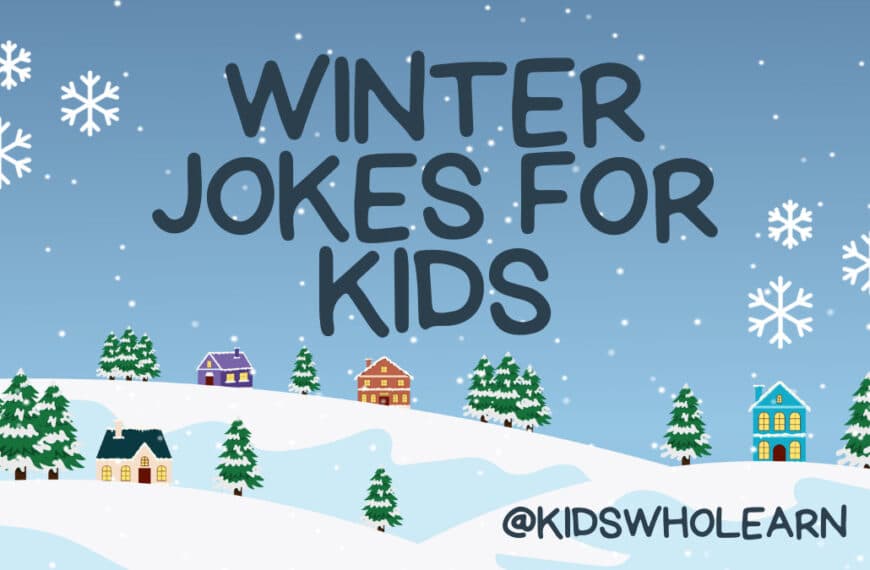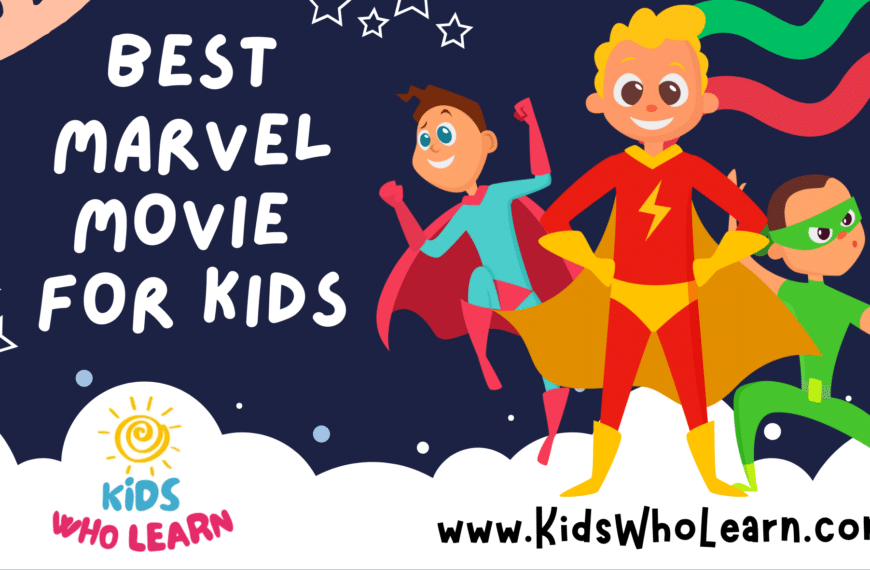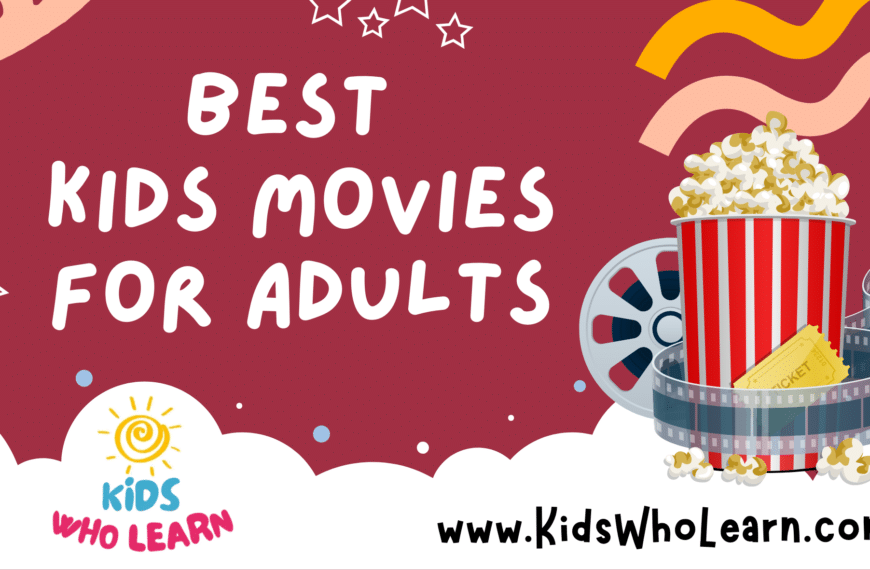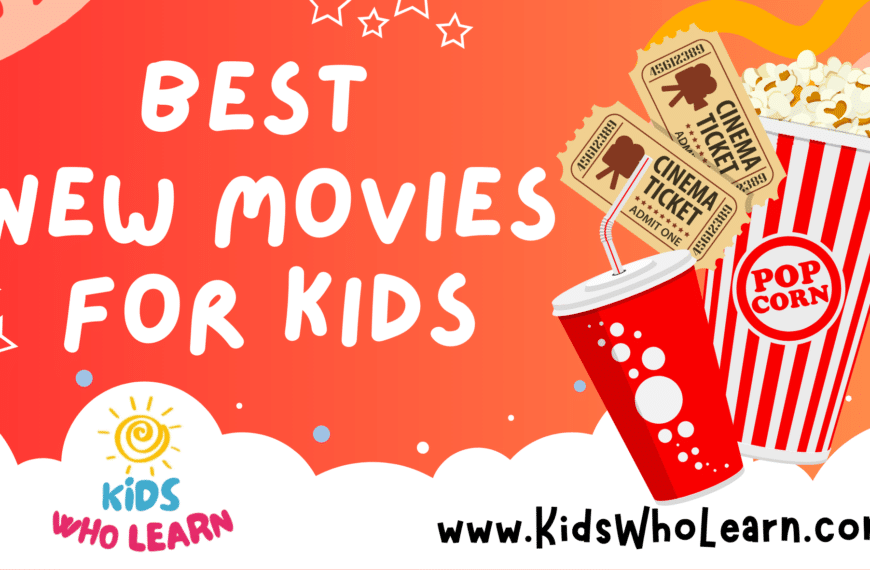If you’re looking for words that rhyme with “kids,” you’re in luck! There are plenty of rhyming words that can help you create fun and engaging poems, songs, and nursery rhymes for kids. Rhyming words can also help children develop their phonemic awareness, which is an essential skill for learning to read and write.
Rhyming words for kids can be found in a variety of contexts, from nursery rhymes and children’s songs to poetry and literature. Rhyming slang is also a popular form of wordplay that kids can enjoy. Whether you’re a parent, teacher, or caregiver, incorporating rhyming words into your interactions with children can be a fun and educational way to engage with them.
Key Takeaways
- Rhyming words can be found in a variety of contexts, including nursery rhymes, children’s songs, poetry, and literature.
- Rhyming words can help children develop their phonemic awareness, which is essential for learning to read and write.
- Incorporating rhyming words into interactions with children can be a fun and educational way to engage with them.
Rhyming Words for Kids
If you are looking for words that rhyme with “kids,” you have come to the right place! Rhyming words can be fun to use in poetry, songs, or just for fun. Here are some words that rhyme with “kids” that you can use in your next creative project.
- Bids
- Grids
- Lids
- Skids
- Squids
These are just a few examples of words that rhyme with “kids.” You can use these words to create a fun and playful poem or song. For example, you could write a poem about a kid who likes to bid on items at an auction. Or you could write a song about a kid who loves to play in the mud and slide on skids.
In addition to these words, there are many other words that rhyme with “kids.” You can use a rhyming dictionary or online tool to find more words that fit your needs. Remember, the key to creating a great poem or song is to have fun and be creative!
Rhymes in Nursery Rhymes
When it comes to finding words that rhyme with “kids,” nursery rhymes are a great place to start. Many popular nursery rhymes feature words that rhyme with “kids,” making them a fun way to introduce rhyming to young children.
One classic nursery rhyme that features a word that rhymes with “kids” is “Jack and Jill.” The line “Jack and Jill went up the hill” rhymes with “Jack fell down and broke his crown.” Another popular nursery rhyme that features a word that rhymes with “kids” is “Little Miss Muffet.” The line “Little Miss Muffet sat on a tuffet” rhymes with “eating her curds and whey.”
In addition to these classic nursery rhymes, there are many modern nursery rhymes that feature words that rhyme with “kids.” For example, the popular children’s song “The Wheels on the Bus” includes the line “The wipers on the bus go swish, swish, swish,” which rhymes with “The driver on the bus says ‘move on back.'”
Overall, nursery rhymes are a great way to introduce young children to the concept of rhyming. By incorporating these rhymes into your child’s daily routine, you can help them develop important language and literacy skills in a fun and engaging way.
Rhyming Slang and Kids
If you’re looking for words that rhyme with “kids”, rhyming slang might be a fun place to start. Rhyming slang is a type of slang where a word or phrase is replaced by another word or phrase that rhymes with it. Here are a few examples of rhyming slang that involve the word “kids”:
-
“Squids” – This is a rhyming slang term for kids that’s commonly used in Australia and New Zealand. It’s believed to have originated in the 1950s or 1960s, and it’s still used today.
-
“Lids” – This is another rhyming slang term for kids that’s used in some parts of the UK. It’s believed to have originated in the 1950s or 1960s, and it’s still used today.
-
“Nibs” – This is a rhyming slang term for kids that’s used in some parts of the UK. It’s believed to have originated in the 19th century, and it’s still used today.
Rhyming slang can be a fun way to play with language and come up with creative ways to express yourself. If you’re interested in learning more about rhyming slang, there are plenty of resources available online.
Educational Importance of Rhymes
Rhymes are an essential part of early childhood education. They are fun and engaging for children, but they also serve a critical role in their development. Here are some reasons why rhymes are so important:
Phonemic Awareness
Rhymes help children develop phonemic awareness, which is the ability to hear and manipulate individual sounds in words. When children hear rhyming words, they learn to identify the sounds that are the same and those that are different. This skill is a crucial foundation for learning to read and write.
Vocabulary Building
Rhymes are an excellent way to introduce new words to children. When children hear new words in a rhyming context, they are more likely to remember them. Rhymes also help children learn about word families, which are groups of words that share the same root word. This knowledge can help children learn to read and spell more efficiently.
Memory and Recall
Rhymes are catchy and easy to remember, making them an effective tool for improving memory and recall. When children learn rhymes, they are developing their memory skills and building connections in their brains that will help them remember information later on.
Social and Emotional Development
Rhyming games and activities are an excellent way to promote social and emotional development. When children participate in group activities, they learn to take turns, listen to others, and work together. Rhymes also provide an opportunity for children to express themselves creatively and build confidence in their abilities.
In conclusion, rhymes are an essential part of early childhood education. They help children develop critical skills such as phonemic awareness, vocabulary building, memory and recall, and social and emotional development. Incorporating rhymes into your child’s daily routine is an easy and fun way to support their learning and development.
Rhymes in Children’s Literature
Rhymes are an essential part of children’s literature. They are fun, engaging, and help children learn language skills. There are many classic books that use rhymes to tell stories, such as Dr. Seuss’s “Cat in the Hat” and “Green Eggs and Ham.”
Rhymes can also be found in poetry for children. Shel Silverstein’s “Where the Sidewalk Ends” and “A Light in the Attic” are great examples of poetry that use rhymes to create a playful and imaginative world for children.
In addition to books and poetry, rhymes can also be found in songs for children. Nursery rhymes like “Twinkle, Twinkle, Little Star” and “Humpty Dumpty” have been passed down for generations and continue to be popular with young children today.
Rhymes can also be used as a teaching tool. Teachers often use rhymes to help children learn new concepts, such as the alphabet or counting. For example, “A is for apple, B is for banana” is a popular rhyme used to teach children the alphabet.
Overall, rhymes are an important part of children’s literature and play a significant role in helping children learn language skills and develop a love for reading and storytelling.
Examples of Words that Rhyme with Kids
Single Syllable Words
When it comes to finding words that rhyme with kids, there are plenty of options to choose from. Here are some single syllable words that rhyme with kids:
- Bids
- Hids
- Lids
- Mids
- Pids
- Rids
- Sids
- Tids
Multi-Syllable Words
In addition to single syllable words, there are also plenty of multi-syllable words that rhyme with kids. Here are a few examples:
- Acids
- Biscuits
- Candids
- Cupids
- Horrids
- Orchids
- Rapids
- Stupids
Of course, these are just a few examples of the many words that rhyme with kids. With a little creativity, you can come up with even more options to use in your writing or poetry.
Rhymes in Children’s Songs
When it comes to children’s songs, rhyming is a key element that makes them fun and memorable for kids. Here are some examples of popular children’s songs that use rhymes:
- Twinkle, Twinkle, Little Star: “Twinkle, twinkle, little star, how I wonder what you are. Up above the world so high, like a diamond in the sky.”
- Mary Had a Little Lamb: “Mary had a little lamb, little lamb, little lamb. Mary had a little lamb, its fleece was white as snow.”
- The Wheels on the Bus: “The wheels on the bus go round and round, round and round, round and round. The wheels on the bus go round and round, all through the town.”
As you can see, each line in these songs ends with a word that rhymes with the previous line. This repetition of sounds helps children remember the lyrics and sing along.
Rhyming in children’s songs also helps with language development. By listening to and singing along with rhyming songs, children learn about word patterns and sounds. This can help them with reading and writing later on.
Overall, rhyming is an important aspect of children’s songs that makes them enjoyable and beneficial for young kids.
Rhymes in Children’s Poetry
When it comes to children’s poetry, rhyming is a crucial element. Rhymes help children learn new words and improve their vocabulary. They also make the poem more fun to read and easier to remember. Here are some common rhymes that you can use in children’s poetry:
- -at words: cat, hat, sat, mat, rat, chat, flat, splat
- -an words: can, fan, man, pan, ran, tan, van, plan
- -en words: den, hen, pen, ten, men, when, then, again
- -it words: bit, fit, hit, kit, lit, pit, sit, split
- -op words: hop, mop, top, chop, flop, drop, stop, prop
Remember, not all words have to rhyme perfectly. Sometimes, near-rhymes can work just as well. For example, “cat” and “hat” rhyme perfectly, but “cat” and “bat” are still similar enough to work in a rhyming poem.
Another way to create rhymes is to use a rhyming dictionary. These dictionaries list words that rhyme with a particular word, making it easier to find rhyming words. Some online rhyming dictionaries include RhymeZone and Rhymer.
When writing a children’s poem, it’s important to keep the tone light and fun. Use simple language and avoid complex themes. Remember, the goal is to make the poem enjoyable for children to read and understand.
Overall, rhyming is an important element in children’s poetry. It helps children learn new words and makes the poem more fun to read. By using common rhymes or a rhyming dictionary, you can create a fun and engaging poem for children.
Conclusion
In this article, you have explored various words that rhyme with “kids”. You have learned that there are many options available to you when it comes to finding words that rhyme with this common word. Whether you are a poet, songwriter, or just looking to expand your vocabulary, knowing words that rhyme with “kids” can be useful.
Some of the most common words that rhyme with “kids” include “lids”, “bids”, “rids”, “squids”, and “slids”. However, you have also learned that there are many other words that can be used to create interesting and unique rhymes. For example, “pyramids”, “hids”, “quids”, and “skids” are all words that can be used to create interesting rhymes.
Remember that finding words that rhyme with “kids” is just the beginning. Once you have a list of words that rhyme, you can start to explore different ways to use them in your writing. Whether you are writing a song, a poem, or a story, using rhyming words can add depth and interest to your work.
In conclusion, knowing words that rhyme with “kids” can be a valuable tool for any writer or poet. By exploring different rhyming words and experimenting with how to use them in your writing, you can create works that are both engaging and memorable. So go ahead and start exploring the world of rhyming words today!
Frequently Asked Questions
What rhymes with kid for a poem?
If you’re looking for a word that rhymes with “kid” for a poem, you have a few options. “Lid,” “bid,” and “did” are all words that rhyme with “kid” and could be used in a poem.
What is a word that rhymes with kid?
As mentioned earlier, “lid,” “bid,” and “did” all rhyme with “kid.” Additionally, “hid,” “mid,” and “rid” are other words that rhyme with “kid” and could be used in a poem.
What rhymes with here for kids?
If you’re looking for a word that rhymes with “here” for a poem for kids, you could use “dear,” “fear,” “near,” or “clear.” These are all words that rhyme with “here” and could be used in a poem for kids.
What rhymes with boy?
If you’re looking for a word that rhymes with “boy,” you could use “joy,” “toy,” “ploy,” or “deploy.” These are all words that rhyme with “boy” and could be used in a poem.
What rhymes with home?
If you’re looking for a word that rhymes with “home,” you could use “chrome,” “dome,” “foam,” or “comb.” These are all words that rhyme with “home” and could be used in a poem.
What rhymes with people for kids?
If you’re looking for a word that rhymes with “people” for a poem for kids, you could use “steeple,” “weeble,” “creepo,” or “leapfrog.” These are all words that rhyme with “people” and could be used in a poem for kids.

